Future-Proof Anaesthesia
Fully Integrated and Modular Anaesthesia Solutions
Reduce consumption and environmental emissions
Darvall’s low-flow anaesthesia solutions are environmentally and economically efficient reducing consumption of oxygen, inhalant agents and other consumables while cutting environmental emissions:
10x reduction in oxygen flow and inhalant agent consumption compared to high-flow, non-rebreathing systems
Reduced outflow of inhalant agents from the pop-off valve cuts environmental emissions and enhances team safety
Removes the need for inefficient, expensive oxygen concentrators that are harmful to the environment
Delivers significant gains in environmental and economic efficiencies
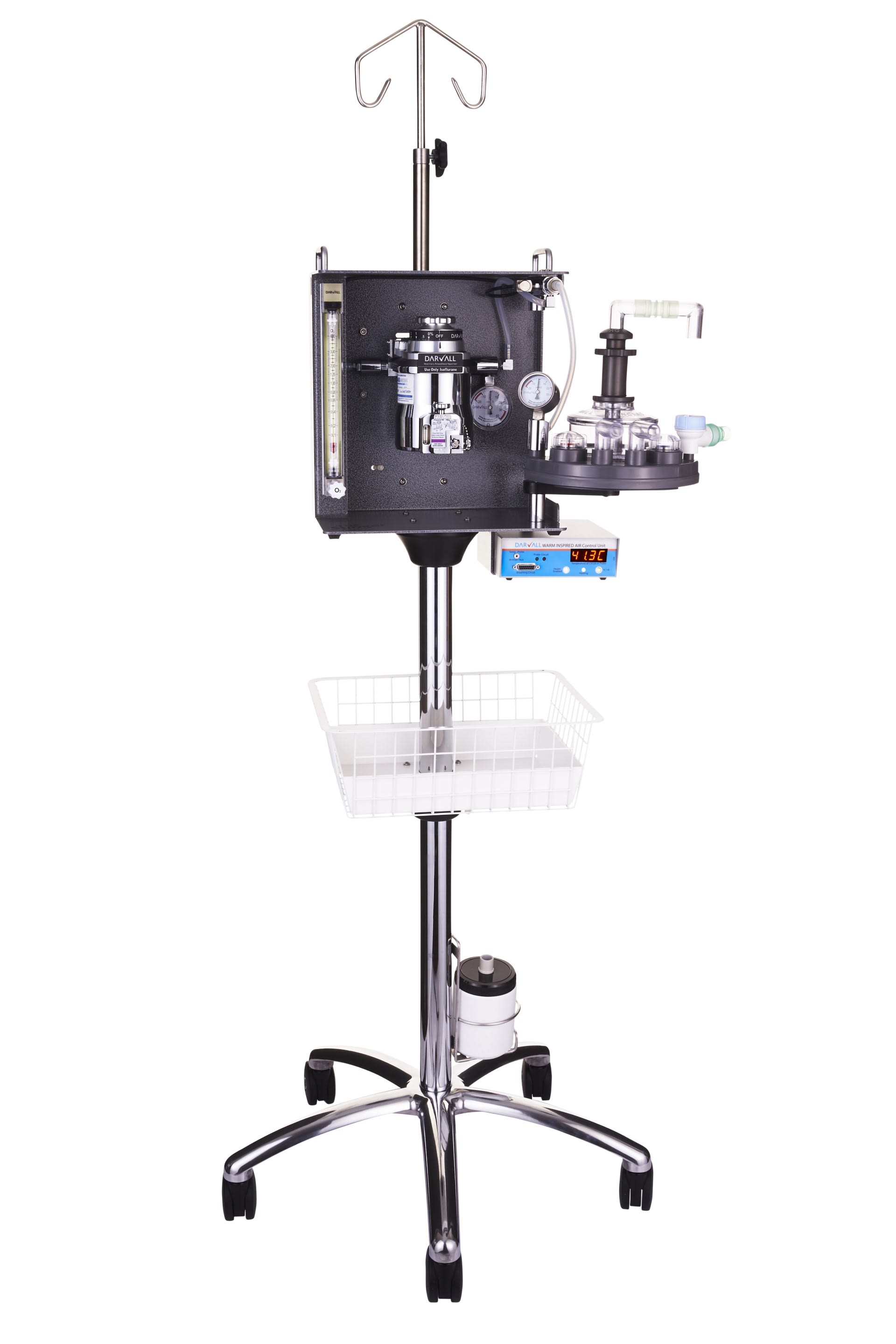
Darvall Stinger Ultra
Future-proof, integrated low-flow anaesthesia
Ultra-reliable, low-fl ow anaesthesia that delivers a ten-fold reduction in consumable gases to significantly reduce costs and the environmental impact. The cost saving of using the Stinger Ultra in a UK setting has been calculated to pay for itself within 24 months or less.
Key components of the Stinger Ultra for low-flow anaesthesia:
- DVM vaporiser
Unique, highly accurate and reliable at very low gas flows down to 200ml/minute. Facilitates cost effective, environmentally-responsible anaesthesia, even for very small patients.
- Stingray Absorber
Low-volume, low-resistance circle absorber for animals from 2kg to 80kg that’s responsive to vaporiser changes within 5 breaths even at low fresh gas flows down to 200ml/minute (30 ml/kg/min). Features one-way inspiratory/expiratory valves that close with minimum force.
- Precision flowmeter
Precise, oxygen flowmeter with an expanded 0 - 1L O2 per minute scale that can be easily read at fresh gas flow rates down to 200ml/minute for accurate can be easily read at fresh gas fl ow rates down to 200ml/minute for accurate low flow delivery.
- Smooth wall tubing
Low resistance, smooth-wall tubes that reduce volume by up to 70% for faster circle system response in smaller animals down to 2kg and at very economical low gas flows.
Cost Saving Calculations
Traditional Anaesthesia vs. Low Flow with Darvall Stinger Ultra and Darvall DVM Vaporiser
DownloadDarvall Modular Anaesthesia Components
Darvall components are designed and manufactured to the highest standards to provide environmentally-friendly, efficient and economic anaesthesia.
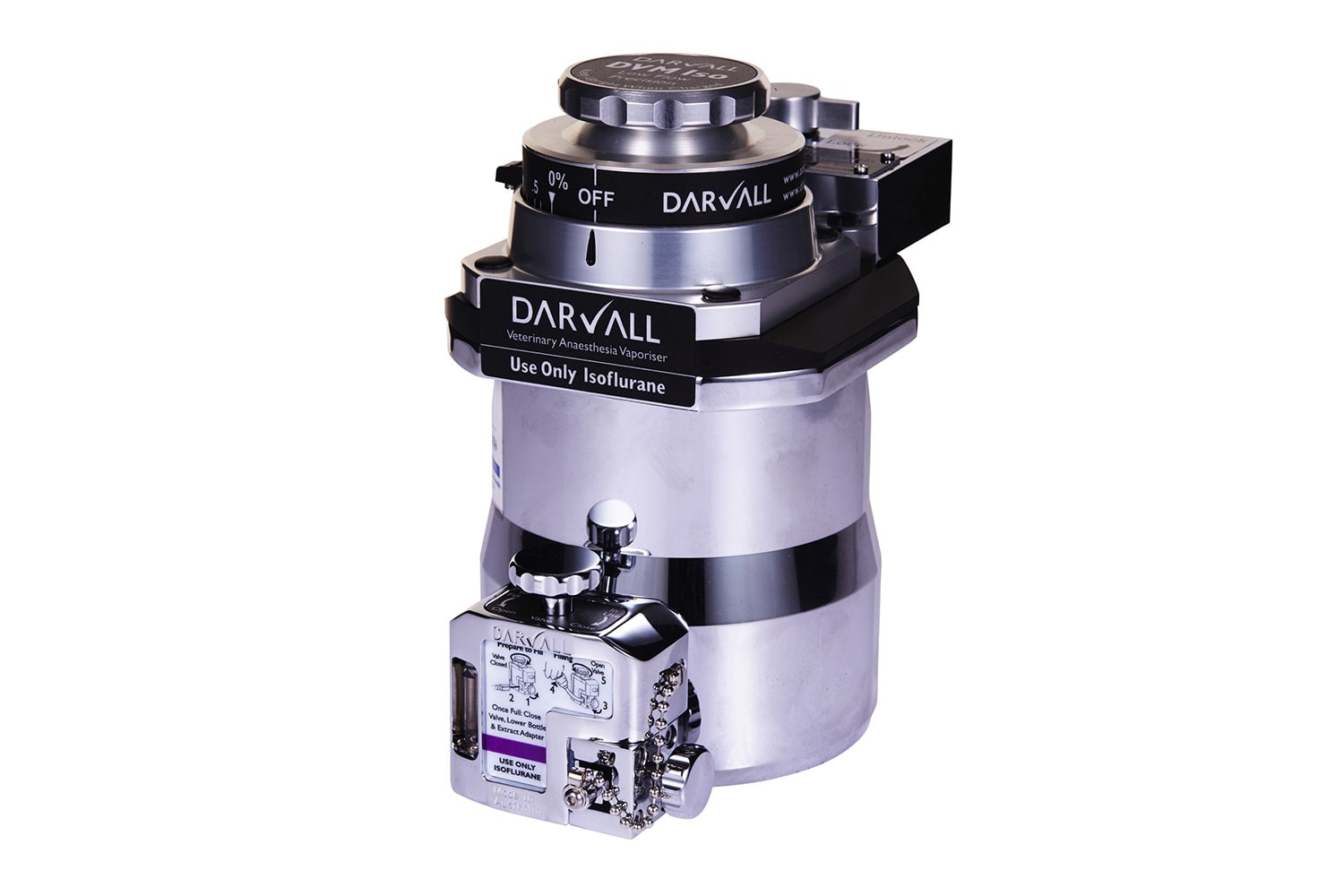
DVM vaporiser
- Reduce gas waste and costs with gas flows that are 2.5x lower than all other vaporisers
- High precision – twice as accurate as human vaporisers at typical low veterinary gas flows
- Innovative, valved fill port block for quick and safe filling into large 250ml isoflurane sump that has a clearly visible, vertical fluid gauge to mitigate the risk of “running on empty”
- Ergonomic precision movement dial with a large vertical calibration scale clearly visible from 2 metres
- Advanced aerospace engineering, build and calibration. All critical components are brass and the protective coatings are ceramic or chrome
- Ten-year service interval
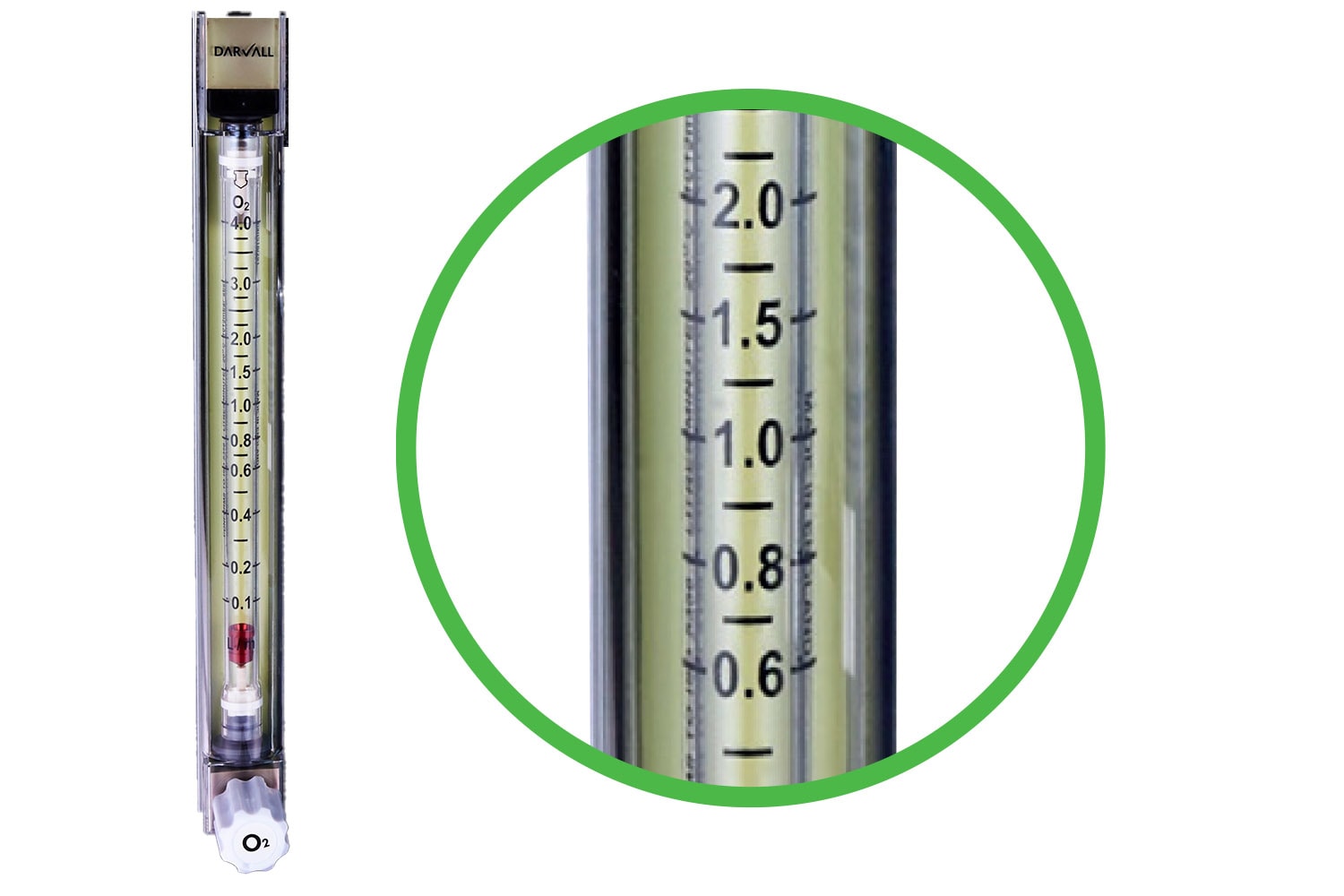
Precise flowmeter
- Very precise flowmeter for low-flow anaesthesia
- Expanded scale to accurately deliver flows as low as 200ml/minute
- Highly visible display even in reduced lighting conditions
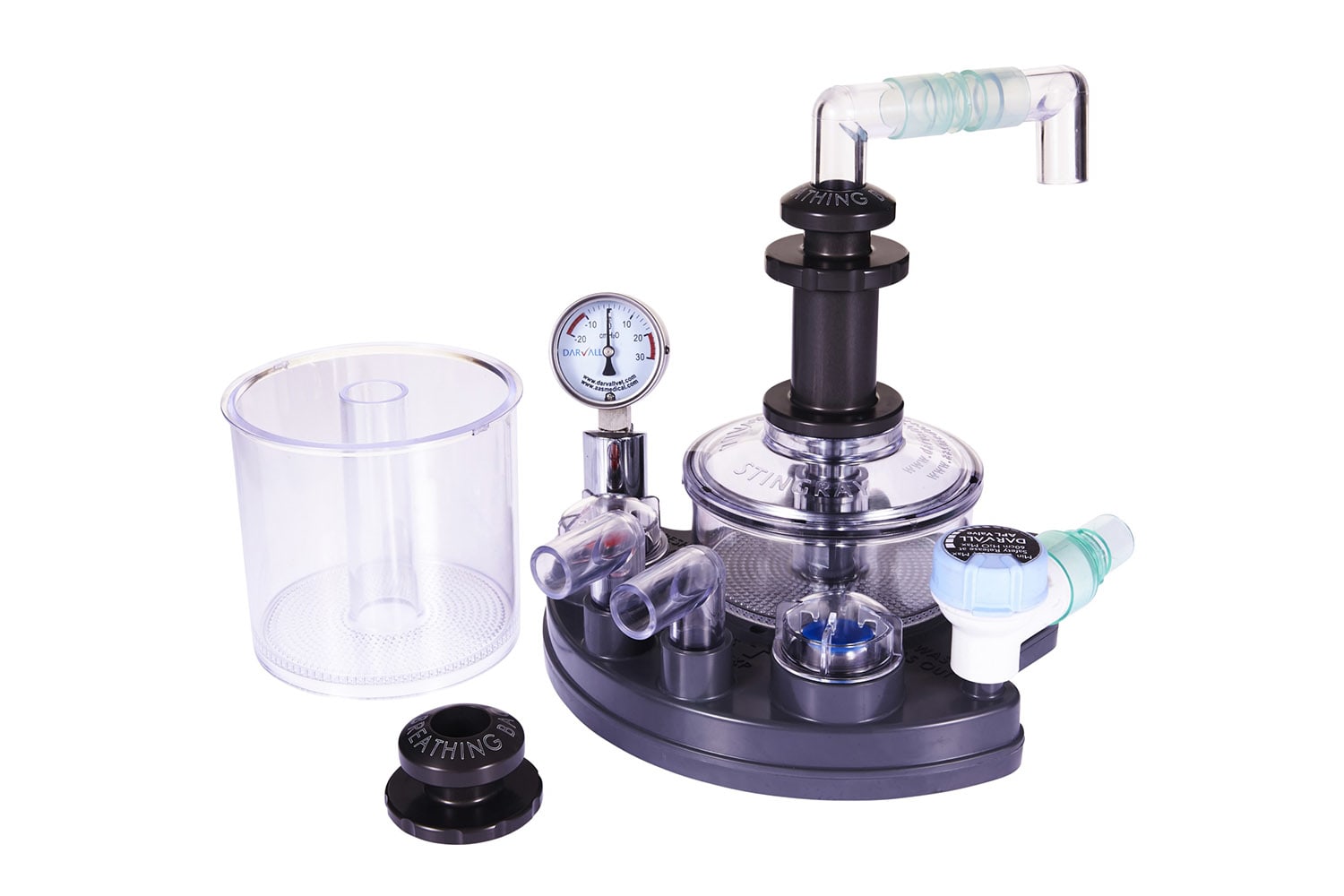
Stingray Absorber
- Fit Stingray to any anaesthetic machine
- Get 100% CO2 absorption efficiency with minimal risk of CO2 rebreathing
- Benefit from a single circle system for all animals from 2-80kg
- Fail safe “pop-off” waste gas valve that relieves pressure at 25 – 30 cm H2O in the closed position
- Combat hypothermia from the first breath by adding Darvall’s low resistance, low volume Heated Smooth-Wall Anaesthesia Breathing Hoses
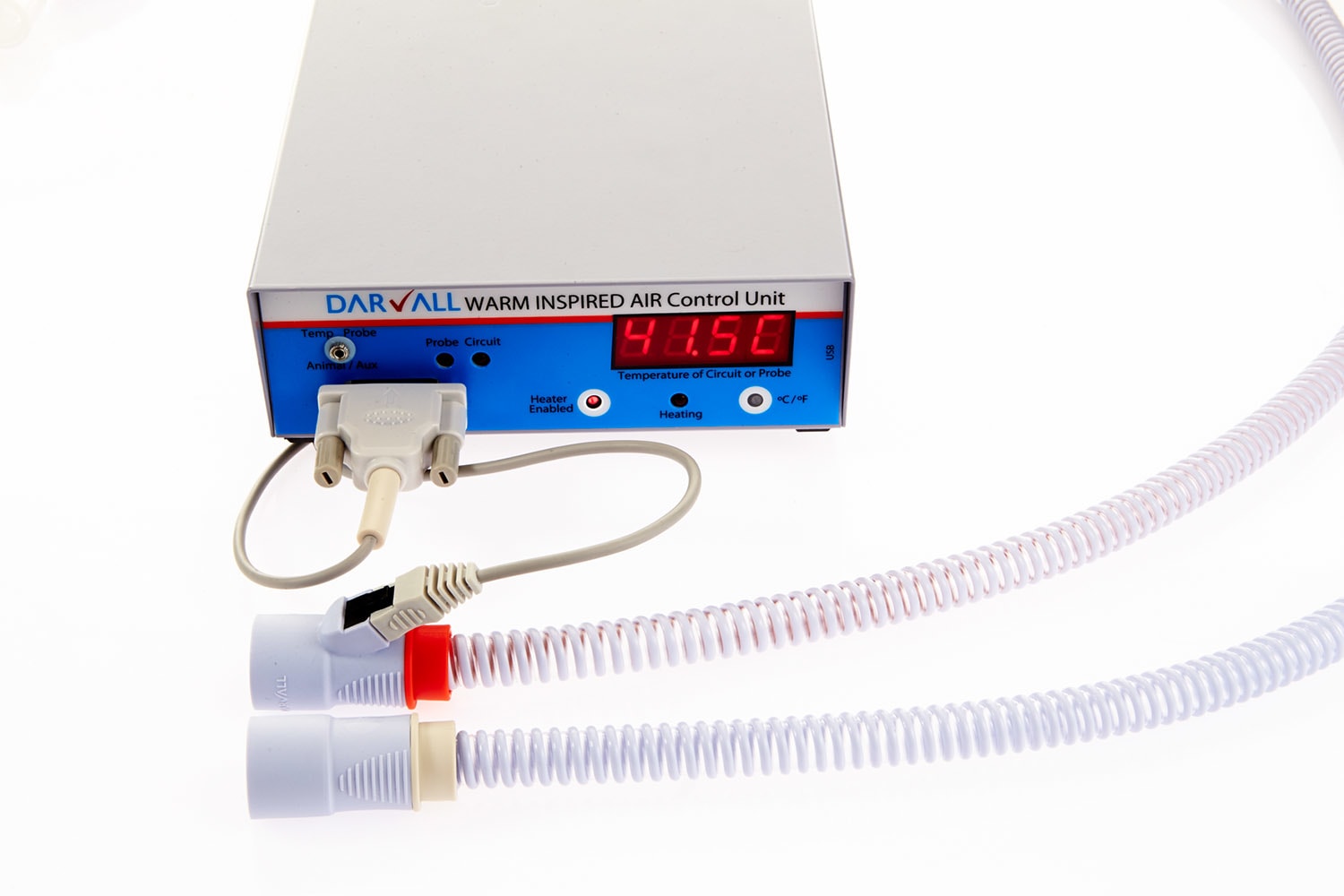
Heat controller & heated tubing
- Instantly deliver warmed, inspired gases to intubated patients from the first breath
- Heating elements integrated into the smooth walled tubing ribs
- Dual sensors in Y-piece and temperature
- Heat controller unit accurately
regulates inspired gas
temperature based on monitoring
Stingray Absorber
Comparison of features of the Darvall Stinger Ultra and the Humphrey ADE
| Feature | Darvall Stingray | Humphrey ADE |
| Convenience1,2 | Simple - Same circle system for animals 2kg-80kg | Re-assembly needed to switch from semi-closed LAC up to 15kg or circle system >15kg |
| Resistance3 | Lowest of six systems tested | Second highest tested - five times higher than Darvall Stingray |
| Response to vaporiser change4 | Rapid - 5 to 10 breaths | Slow for circle system - 24 breaths before isoflurane detected (approx. 2 min) |
| Fresh Gas Flow for patients 2-15kg2,4,5,6 | Low: 10ml/kg/min to 30 ml/kg/min. 200 ml/min minimum | High: 100 ml/kg/min (Semi-closed). 500 ml/min minimum |
| O2 "G" cylinder consumption | 190 hours - 10kg dogs | 57 hours - 10kg dogs |
| Need O2 Concentrator7 | No: Low Flow Stingray uses less than 1L/min up to 35kg animals | Offers concentrator, use of which removes any benefit of Low Flow. |
| CO2 Rebreathing Risk | Low | Yes - rebreathing threshold results in sudden inspired CO2 increase |
| CO2 Absorber Efficiency | Good: 100% - gas flows top to bottom of canister; indicator change easy to see | 50% - gas tracks once it passes under the centre divider, 2nd side indicator change unreliable |
| CO2 Absorbent change | Simple & quick | Complicated: upside down position to disassemble |
| Pop-Off Resistance | Opens @ 2 cmH20: 10L/min exp. flow | Opens @ 3 cmH20: 10L/min exp. flow (=15kg dog) |
| Pop-Off Safety accidental closure | Fail Safe at 30 cmH20 | No Fail Safe relief |
References
- Dunlop CI. Darvall Stingray Circle Absorber white paper. Darvall website 2015.
- Humphrey D. The Humphrey ADE-circle anaesthetic system in veterinary practice. Anaequip Website: 2015.
- JS Dunlop, CI Dunlop, P Hartigan et al. Comparative Flow Resistance of Circle Breathing Systems used for Anaesthesia of Small Animals. Abst. WCVA, Capetown S. Africa Sept 2012.
- CI Dunlop, JS Dunlop, RA Curtis et al. Comparison of the dynamic response to changing anaesthetic concentration in circle breathing systems used on animals from 3 to 20Kg. Abst. WCVA, Capetown S.Africa Sept 2012
- Brown V. The rate of rise of inspired anaesthetic concentration in a rebreathing system suitable for small dogs and cats. BScVet Hons Thesis Faculty of Veterinary Science, University of Sydney
- Alibhai HIK, Lilja AS, Clarke KW. Evaluation of the Humphrey ADE circuit during spontaneous ventilation in dogs. Abst.Vet Anaesth Analg 26:38-39; 1999.
- Artu AA, Katz RA. Evaluation of the Humphrey ADE breathing system. Can J Anaesth 34:484-488;1987
Cookie policy
